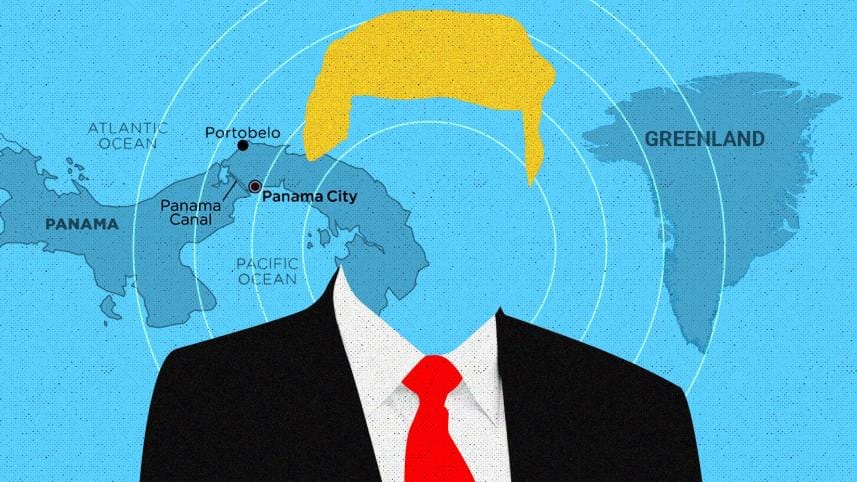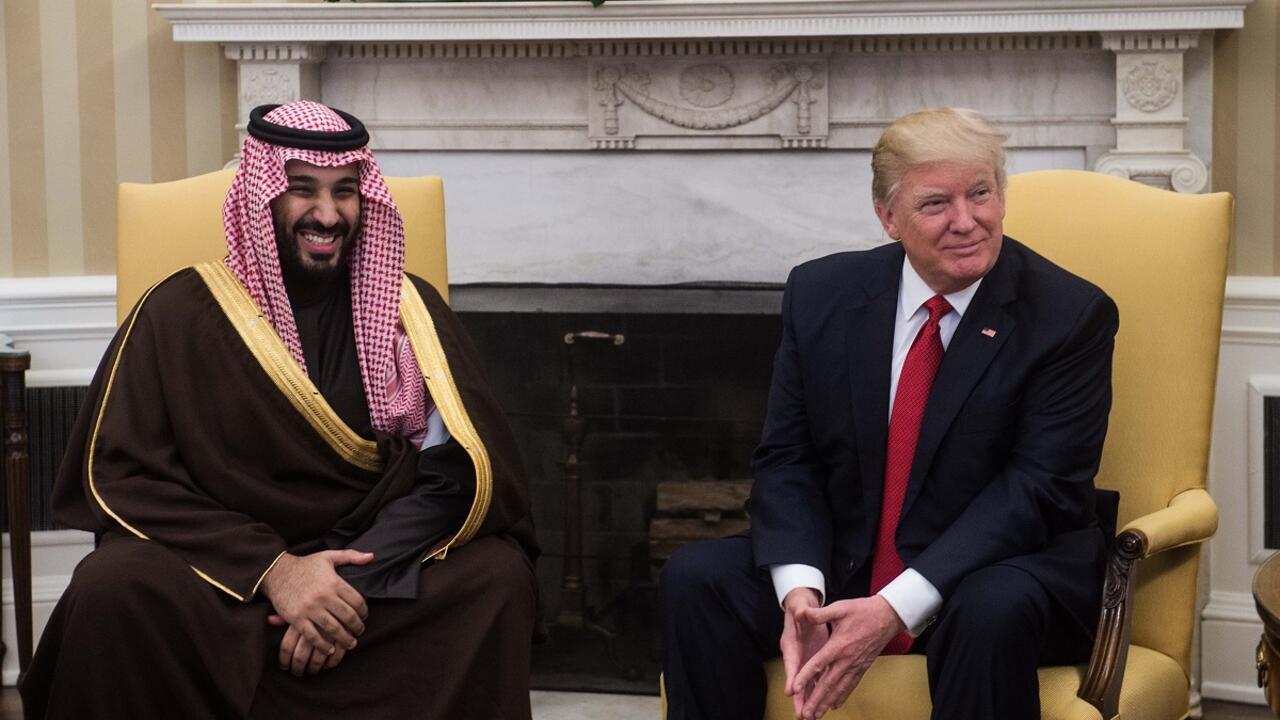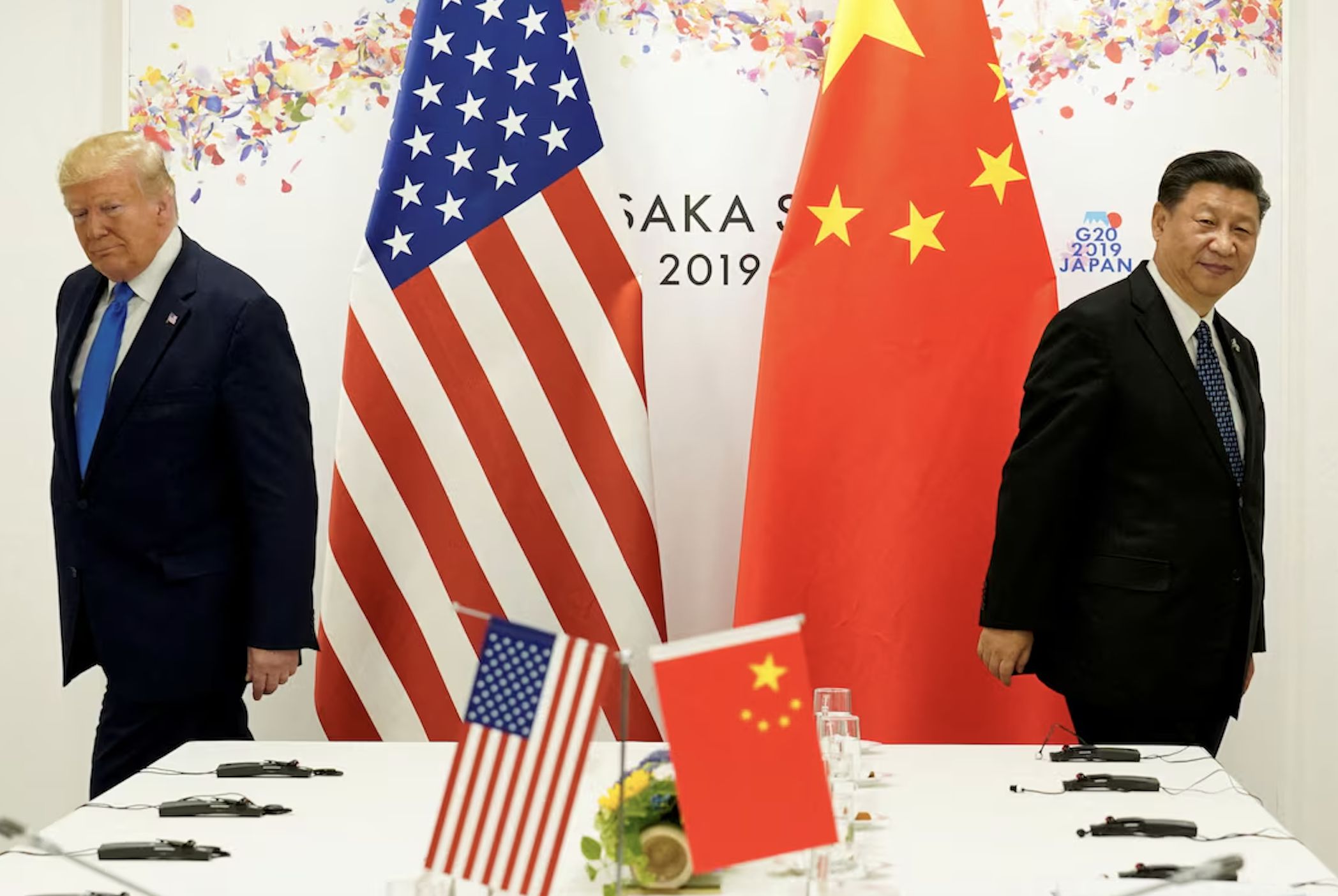The art of imperialistic absurdity

If Hollywood ever decided to produce a sequel to Dr. Strangelove or Veep, Donald Trump's latest ambitions might just provide the perfect script. Picture this: a man with a penchant for gold-plated toilets and reality TV now wants to claim ownership of both Greenland and the Panama Canal. And why not? After all, who's going to stop him? Denmark? Panama? NATO? As Trump might say, "Sad."
Back in 2019, Trump floated the idea of purchasing Greenland, sparking laughter across the globe due to its sheer audacity and lack of precedent. The proposal seemed to stem from a mix of strategic ambitions and a transactional worldview, where even a massive, semi-autonomous territory could be treated like a commodity for sale. To many, the idea highlighted a misunderstanding of modern geopolitics and Denmark's strong ties to Greenland, which made the suggestion not only impractical but also surreal. It seemed like the punchline to a joke that no one had told. But fast forward to today, and the President-elect has taken it up a notch, suggesting he might use economic or even military force to seize the world's largest "ice cube." Think Frozen, but instead of Elsa singing "Let It Go," Trump is yelling, "Make Greenland American Again!"
Why Greenland, you ask? Well, beyond the glaciers and polar bears, it's about "unlimited" untapped resources—something Trump likely equates to a hidden treasure chest in a pirate movie. Imagine him, tricorn hat and all, shouting, "X marks the spot!"
But there's a hitch: Greenland isn't for sale. Denmark's prime minister called the idea "absurd." Trump, of course, took this as a personal insult and cancelled a state visit to Denmark in August 2019—because nothing screams diplomacy like a tantrum. It's as if Tony Stark showed up to Wakanda demanding Vibranium, only to storm off when Shuri politely declined.
Trump's argument, though, has its own twisted logic: Denmark isn't doing enough to protect Greenland from Russia and China, as evidenced by its limited investment in Greenland's defence infrastructure and its reliance on NATO for strategic support. For instance, Denmark has been criticised for not allocating sufficient resources to counter growing Russian military activity in the Arctic or China's increasing economic influence through infrastructure projects. These gaps have left Greenland vulnerable, fuelling arguments for stronger international intervention. Trump's solution? American bases, troops, and perhaps a McDonald's on every fjord. Greenlanders, however, aren't buying it. Their prime minister has made it clear that while independence is a goal, it will not involve hosting a Trump Tower.
While Trump dreams of a frosty new state, he's also eyeing the Panama Canal. In his mind, America's "extraordinary generosity" in handing it over in 1999 was a grave mistake. Never mind the century of exploitation, labour deaths, and military invasions that marked US control of the canal. For Trump, history isn't written in blood but in toll receipts.
His rhetoric about "extremely high" tolls charged by Panama sounds like a bad Yelp review. You can almost hear him: "The canal's service is terrible, folks. They're charging us too much. We built it, we should get a discount." It's the geopolitical equivalent of a Karen demanding to speak to the manager.
Trump also claims that China is secretly taking over the canal, but the basis for this assertion remains unsubstantiated, leaving many to draw comparisons to his previously debunked claims, such as windmills causing cancer. It's a plot straight out of a Mission Impossible movie—complete with shadowy Chinese agents, underwater submarines, and probably Tom Cruise dangling from the canal's locks. Except in this version, the mission is less "impossible" and more "implausible."
If Denmark and Panama won't comply, Trump has a Plan B: economic strong-arming. Think The Godfather, but instead of Marlon Brando, it's Trump muttering, "I'm gonna make them an offer they can't refuse—tariffs."
Denmark, for instance, could face increased US tariffs on goods like insulin and hearing aids—products that Americans rely on but Trump sees as leverage. These tariffs could potentially disrupt Denmark's significant export economy and increase healthcare costs for US consumers who depend on these essential products. Such a move might also provoke retaliation from Denmark, further complicating trade relations. Meanwhile, Panama might find itself targeted with broader trade restrictions, which Trump could justify using the International Emergency Economic Powers Act of 1977. Never mind that these moves would hurt American consumers as much as anyone else—economic strategy isn't exactly Trump's forte. Just ask Atlantic City.
And then there's the "nuclear option": military force. Experts have dismissed this as unlikely, but can we really rule out anything? The man once suggested nuking hurricanes. Deploying troops to Greenland or Panama might seem ridiculous to the rest of us, but to Trump, it's just Tuesday—a day for geopolitical gambits with real-world consequences. Such actions, if ever pursued, could destabilise international relations and provoke serious economic and diplomatic fallout, making the implications far from amusing for those involved.
The parallels between Trump's Greenland and Panama fantasies are almost Shakespearean—if Shakespeare wrote Monty Python sketches. Both involve a misunderstanding of sovereignty, a disdain for diplomacy, and an unwavering belief in America's divine right to do whatever it pleases.
In Greenland, Trump's approach echoes The Avengers when Loki declares, "You were made to be ruled." But unlike the heroes of Marvel Comic Universe, Greenland's leaders aren't buying it. Meanwhile, in Panama, Trump's rhetoric feels more like a scene from The Simpsons, where Homer, after being kicked out of Moe's Tavern, tries to buy the bar just to spite everyone.
Ultimately, Trump's Greenland and Panama fantasies reveal more about his worldview than about the territories themselves. For him, the world is a Monopoly board, and he's determined to own Boardwalk and Park Place—even if it means bankrupting everyone else.
But reality doesn't work that way. Greenland isn't a pawn in a game of Risk, and the Panama Canal isn't a property on The Game of Life. Both places are symbols of sovereignty, history, and resilience, which is unlikely to change, though Trump's bluster might make for great headlines.
So let's all take a moment to appreciate the absurdity of it all. Because in a world where a former reality TV star can threaten to buy an island and reclaim a canal, sometimes all you can do is laugh—and maybe start stockpiling insulin, just in case.
H.M. Nazmul Alam is lecturer at the Department of English and Modern Languages of the International University of Business, Agriculture and Technology (IUBAT). He can be reached at nazmulalam.rijohn@gmail.com.
Views expressed in this article are the author's own.
Follow The Daily Star Opinion on Facebook for the latest opinions, commentaries, and analyses by experts and professionals. To contribute your article or letter to The Daily Star Opinion, see our submission guidelines.




 For all latest news, follow The Daily Star's Google News channel.
For all latest news, follow The Daily Star's Google News channel. 


Comments